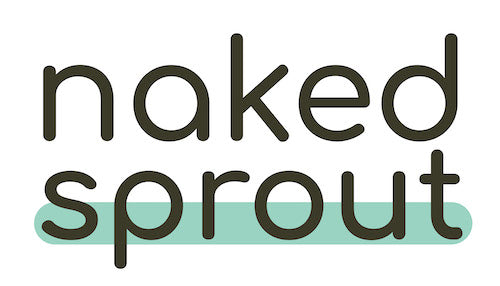Eco Friendly Toilet Rolls: Five Reasons to Make the Change
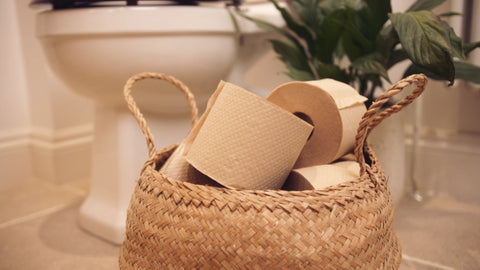
Toilet paper is a staple household item in about 30% of the world. If we think about the objects we use most often in our everyday lives, they’re up there with toothbrushes and phones. And sadly, those soft little rolls can have a significant environmental footprint.
In recent years, various companies have started to sell more environmentally friendly toilet rolls, drawing on unconventional materials and methods to minimise the impact from this everyday item. At Naked Sprout we use bamboo and recycled packaging materials to make our rolls and we manufacture them with renewable energy generated onsite at our factory, massively reducing the environmental damage that comes with them.
Regular readers of our blog will know that, when it comes to sustainability, we like to get really detailed. But today we thought we’d give an overview - five great reasons to switch to sustainable and eco-friendly toilet paper.

The Impact on Forests
We need to protect our forests. The images of trees and woods that you see on the packaging of sustainable products aren’t just there because people like pictures of nature - forests really are incredibly important, providing the oxygen we breathe and the habitats for countless species of flora and fauna.
So it’s maddening to think that most toilet paper is still made by cutting down trees, that we are destroying resources and habitats that are of such critical value for all life on earth, for the sake of such a small convenience.
The softer the roll, the more likely it’s made from virgin timber. Plush quilted rolls need virgin fibres to produce that thick, pillowy texture. Even in cases where toilet rolls are produced using trees that are being commercially farmed, that is still a lot of area that must be given over, over a long period of time, to grow those trees.
Eco-friendly toilet paper is often made from recycled materials or sources such as bamboo like we use at Naked Sprout, which grows faster and uses less water than trees used for conventional paper. And you can of course always go recycled!
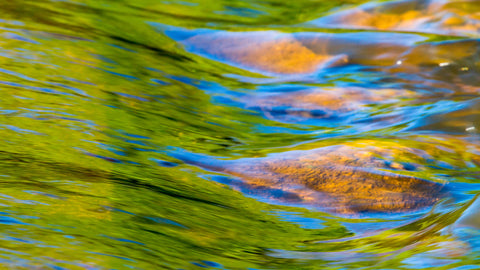
Water and Energy
It’s not just raw materials that go into making toilet paper. Each roll comes with an invisible price tag in water and energy.
The process of turning wood into toilet paper requires large amounts of water for pulping and bleaching - it’s been estimated as much as 140 litres per roll. Pulping can be done mostly mechanically, but bleaching is a more intensive chemical process, and the production and use of bleach, even chlorine-free bleach, has an impact on the environment.
It also takes a lot of energy to make tissue. Once you’ve finished pulping and bleaching, you have huge sheets that have to be dried, and all that heat has to come from somewhere. For traditional toilet roll manufacturers, and most eco manufacturers as well, the energy to make this heat comes from natural gas, a fossil fuel, which is burned in huge quantities in their furnaces. This, not transport or raw materials, is the single biggest contributor to the climate footprint of toilet rolls.
So to make a truly sustainable toilet roll you need to get your use of water and energy in order. At Naked Sprout we don’t bleach our rolls, and we don’t use fossil fuels in our furnaces - we use biofuel that comes from the area around our factory. As a result, the water we use can be returned to the river it comes from, and our emissions are at least 50% lower than the norm, even the norm for other eco toilet rolls.
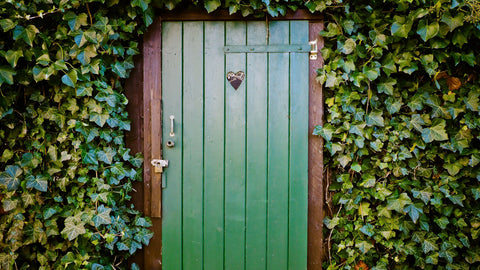
Biodegradability and Septic Safety
That’s the impact on the planet dealt with, now what about the impact on your plumbing?
Our customers are a nature-loving bunch, and we often receive questions from people who are looking for a toilet roll that will work well in their campervan or composting toilet. And about 1.5 million houses have septic tanks, which also need a bit more care than toilets plumbed into central sewers.
Eco-friendly toilet rolls can work really well for septic tanks and nonstandard loos because they’re usually designed to be rapidly biodegradable, reducing the risk of plumbing issues, particularly when you compare them with the plush, quilted toilet rolls we’ve discussed above. And if you’re using an unbleached toilet roll that doesn’t contain harsh chemicals, like Naked Sprout, you’re avoiding adding anything that could disrupt the chemical balance of your system.
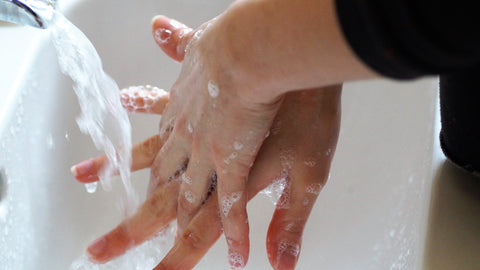
Health
As we’ve mentioned above, bleach is completely standard in conventional toilet rolls. It’s so normalised you might not even notice it. But none of the raw materials that you can use to make toilet rolls will produce a pure white tissue without help, so if you’re looking at a white roll, you’re looking at one that’s been bleached.
At Naked Sprout we make unbleached toilet rolls, and we often hear from customers with skin sensitivity, who have found that unbleached tissue is less irritating to their skin than the standard bleached rolls. Recent studies have also suggested links between the bleach used in toilet rolls and a range of minor and much more serious health complaints.
The most sustainable and environmentally friendly toilet rolls will therefore be made without bleach, and they won't pose the same potential problems for health. At Naked Sprout we’ve never used bleach in any of our products.

The Bigger Picture
Aside from the environmental and health benefits, it’s good to think about the big picture. Choosing environmentally friendly toilet rolls sends the message to manufacturers that people are growing more aware of the impact of their daily lives, and they want to see change from the industries producing the goods they use every day.
The bottom line is, the large manufacturers are motivated by money, and if they see enough people moving to products that might be less conventional but are just as good for the task at hand, they will start to move in that direction themselves.
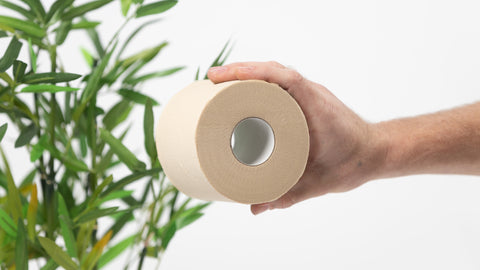
Conclusion
Your choice of toilet roll might not seem like the most dire problem facing our planet right now, and in the grand scale of things, it isn’t. But it does represent an everyday opportunity to shift the needle towards meaningful change.
With the average person in the UK using 127 rolls per year, the benefits of manufacturing with renewable energy, with no harsh chemicals, no plastic, mount up. And perhaps the most compelling reason is to send a message. We want industries to do better, and we want the future to be as bright as possible for ourselves, for the ones we love, and everyone who comes after us. We’re not going to save the planet from the bathroom, but it’s a place to start!
Want to make the change?
